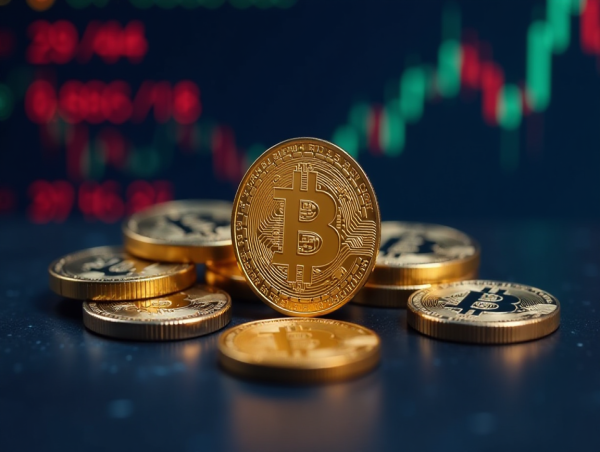In the commercial centre of Cochabamba, the third largest city of Bolivia, cryptocurrencies are quickly becoming a necessity rather than a fragmented experiment.
Crypto ATMs enabling shoppers to swap coins for Bitcoin, beauty salons accepting digital assets at a discount, and Binance accounts getting you meals.
Bolivia is facing one of its most serious economic crises in decades. Dollar reserves in the country are nearly depleted. The result is the highest inflation in 40 years.
According to a Reuters story, the city is congested with gas station lines due to a lack of fuel.
The official exchange rate is more detached from reality, with the boliviano losing half of its value on the illegal market this year alone.
Amid the instability, an increasing number of Bolivians are turning to cryptocurrencies, Bitcoin, stablecoins like Tether, and platforms like Binance, as a hedge against the country’s collapsing currency.
Crypto adoption surges amid Dollar scarcity
Despite the scarcity of exact statistics, there are numerous signals of rising cryptocurrency use.
Until recently, digital currencies were prohibited in Bolivia.
But by October of last year, the central bank had reported $24 million in digital asset transactions.
Analysts believe that figure has climbed dramatically in recent months, as trust in the boliviano has dwindled.
Bolivia’s rate of adoption is also being compared to economically distressed neighbours such as Argentina and Venezuela.
Nonetheless, the overall volume of cryptocurrency activity is low.
Daily Tether (USDT) transactions are expected to be around $600,000, which is much lower than the volume flowing through traditional banks and the country’s informal cash-based economy.
Binance is the preferred platform for many Bolivians due to its low costs and peer-to-peer capabilities.
However, global controversies loom large: in 2023, Binance paid a $4.3 billion settlement for breaking US anti-money laundering regulations.
According to Mauricio Torrelio of the Bolivian Blockchain Chamber, the country’s adoption rate is now comparable to that of Argentina and Venezuela.
The overall scale of the market, however, lags well behind its South American counterparts and other domestic activities.
According to Jose Gabriel Espinoza, the former president of Bolivia’s central bank, daily USDT volumes average roughly $600,000, a fraction of the $18-$22 million in the legal financial sector and $12-$14 million in the cash-based criminal market.
“While crypto is growing, it’s still a nascent market,” he said to Reuters.
Everyday payments go digital
Despite the hazards, several firms in Cochabamba have adopted digital currencies as an alternative to the national structure that is on the point of collapsing.
At Bros Steakhouse, patrons can have a payment option through Binance or an ATM linked to Blink, a crypto wallet developed in El Salvador—the first country that makes Bitcoin legal.
Meanwhile, across town, Carla Jones, owner of a spa that gives Bitcoin discounts to customers.
She tells clients, “Three tanning sessions for less when you pay in crypto.” Rather, it is to attract younger clients and keep funds in a currency that could have a better store value than the boliviano.
These innovations are not just typical tech-savvy marketing, but rather, are indicative of a deep-seated financial anxiety.
Cryptocurrencies, in turn, are filling a vacuum as banks run out of dollars and the official exchange rate reaches irrelevance.
A reflection of decline, not growth
Despite the enthusiasm, experts warn against seeing Bolivia’s cryptocurrency development as a sign of modernisation.
Many analysts believe it suggests desperation rather than a digital revolution.
The huge drop in gas exports has reduced Bolivia’s access to hard cash, forcing it to rely on costly fuel imports and creating a parallel economy for dollars.
On the streets, a US dollar buys more than 16 bolivianos, greatly exceeding the official rate of 6.9.
Some perceive cryptocurrency as a risky gamble in an already volatile market.
Vulnerable communities may be enticed to shift real-world money into volatile assets.
In some situations, cryptocurrency has been marketed as a cure-all in Bolivia’s poorest districts, only to backfire when coin prices fall and shops quit taking it.
According to Reuters, Bitcoin supporters like Andree Canelas see the transition as a sensible response to economic decline.
He is assisting with the installation of cryptocurrency ATMs at shops and cafes throughout Cochabamba.
The message is that holding Bolivians in a till is no longer secure. Despite the risk, cryptocurrency may provide a better future.
“People see the volatility,” according to him, “but they also see the alternative: guaranteed loss.”
The post Cryptocurrencies replace cash as Bolivia’s economic crisis deepens appeared first on Invezz




